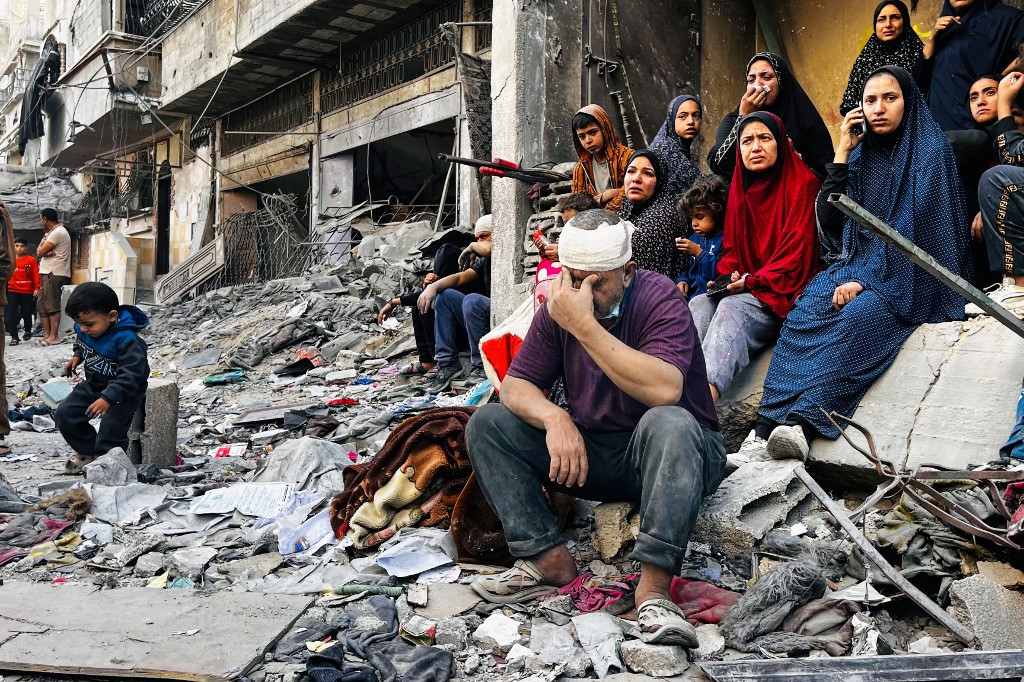A Pause in Mediation for Peace
Qatar, a Gulf country known for its diplomatic ties, has decided to pause its mediation efforts between Hamas, a Palestinian militant group, and Israel. Qatar has been working with the United States and Egypt to encourage both sides to reach a ceasefire and agree on releasing hostages. However, Qatar’s foreign ministry recently announced that it will only resume its role when both sides show a real commitment to reaching an agreement. This pause in talks could make it harder for any deal to be reached in the ongoing conflict in Gaza.
Qatar’s Role in the Mediation Process
For years, Qatar has hosted Hamas political leaders in its capital, Doha, allowing them to communicate with other countries. Qatar’s involvement provided a platform for discussions and helped bring the warring parties to the negotiating table. This setup has been crucial, as it allowed the Gulf state to act as a bridge between Western nations, like the United States, and organizations that do not have direct relations with these countries.
Since October 2023, when Hamas launched an attack on Israeli communities, killing civilians and taking hostages, tensions have only escalated. Israel responded with a military campaign in Gaza, resulting in significant destruction and a high death toll. These events have made it harder for Qatar to maintain its mediation efforts, especially as both sides disagree on ceasefire terms and long-term plans for Gaza.
Hamas’ Presence in Doha
The U.S. has urged Qatar to reconsider allowing Hamas’ political office to remain in Doha. According to reports, Qatar has already started to evaluate whether the Hamas office still serves a purpose. This office, established in 2012, has been an important channel for diplomatic communication. It previously helped with negotiations and even contributed to short ceasefires and hostage exchanges.
However, Qatar has not set a clear deadline for the office to close. Discussions are ongoing, and it remains uncertain how much longer Hamas leaders will be allowed to stay in Doha. Some officials from Hamas, including potential successors to the group’s leadership, are currently based in Qatar. In the past, when Hamas leaders temporarily relocated to Turkey, negotiations slowed, and the U.S. and Israeli officials reportedly asked Qatar to allow them to return. This experience has led many to recognise Qatar’s role in regional peace efforts.
Challenges and Disagreements in Ceasefire Talks
Since the beginning of the Gaza conflict, multiple attempts have been made to achieve a ceasefire. Qatar, working with the U.S. and Egypt, has led these talks, but disagreements between Hamas and Israel have hindered progress. Hamas previously rejected a short-term ceasefire, while Israel did not accept certain proposals for a long-term truce. The main issues include whether Hamas should continue operating in Gaza and what Israel’s role in Gaza should be after the conflict.
These unresolved issues have created an impasse, with both parties holding firm to their positions. Qatar’s decision to halt mediation signals frustration with this lack of progress. By pausing, Qatar hopes to encourage Hamas and Israel to approach future talks with a greater willingness to compromise.
The Future of Qatar’s Role in Regional Diplomacy
Qatar has long served as a mediator in Middle Eastern conflicts. It hosts the largest U.S. airbase in the region and is officially recognized as a major non-NATO ally by the United States. This designation allows Qatar to play a unique role, connecting Western powers with groups like Hamas and even the Taliban in Afghanistan. Qatar also recently helped with a U.S.-Iran prisoner exchange, showing its ability to work across political divides.
However, Qatar’s relationship with Hamas has raised questions about its neutrality in the Gaza conflict. While the country’s leaders emphasize their commitment to peace, they must balance multiple diplomatic relationships. By reconsidering its hosting of Hamas officials, Qatar is likely assessing the best approach to maintain regional stability and its status as a diplomatic hub.
Humanitarian Crisis in Gaza Continues
As diplomatic efforts stall, the humanitarian situation in Gaza remains dire. The ongoing conflict has led to severe loss of life and widespread destruction in the area. Israel’s military response to Hamas’ attacks has caused significant damage to infrastructure, homes, and essential services in Gaza. Civilians continue to suffer as the violence disrupts access to food, water, medical care, and shelter.
International aid organizations and neighboring countries have raised concerns about the situation, urging all parties to work towards a ceasefire to prevent further civilian casualties. Although Qatar’s mediation pause may create delays, the hope remains that other diplomatic channels can be used to address the crisis.
Uncertain Path to Peace
Qatar’s decision to pause its mediation highlights the difficulties in achieving peace in Gaza. The lack of agreement on key issues has created a challenging situation, with both sides unwilling to compromise. Qatar’s involvement in the process has been vital, and its ability to bring the warring parties together remains unmatched. But without a clear commitment from both Hamas and Israel, the chances of reaching a truce remain slim.
As Qatar evaluates its next steps, the focus shifts to finding a path forward that ensures regional stability and reduces harm to civilians. International leaders and diplomats hope that the warring parties will eventually agree to renewed talks, understanding that continued conflict only deepens the humanitarian crisis. Qatar’s role as a mediator is crucial, and many are watching closely to see if its diplomatic influence can help shape a lasting solution for peace.

